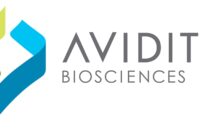NEW YORK and MELBOURNE, Australia, Sept. 25, 2018 (GLOBE NEWSWIRE) — Mesoblast Limited (ASX:MSB, Nasdaq:MESO) today announced that Mesoblast’s proprietary allogeneic mesenchymal precursor cell (MPC) heart failure product candidate MPC-150-IM for use in children with hypoplastic left heart syndrome (HLHS) was featured at the First Cardiac Regenerative Symposium for Congenital Heart Disease in Baltimore, Maryland on the weekend. The symposium focused on the potential for using cellular therapies in the treatment of complex congenital heart conditions.
A randomized, placebo-controlled 24-patient trial is ongoing at Boston Children’s Hospital and combines an injection of MPC-150-IM into the left ventricle with corrective heart surgery in children under the age of five with HLHS. To date there have not been any cell-related safety concerns in the trial. Consequently, this trial has the potential to extend the safety profile of MPC-150-IM beyond adults, where it is being studied in two complementary late-stage clinical trials in patients with advanced and end-stage chronic heart failure, to children with congenital heart disease.
Dr Sitaram Emani, Associate Professor of Surgery at Harvard Medical School and Director of the Complex Biventricular Repair Program at Boston Children’s Hospital, and the trial’s Principal Investigator, said: “We believe that a direct injection of Mesoblast’s cellular medicine into the hypoplastic left ventricle as an adjunct to surgical rehabilitation has the potential to promote growth and regeneration of that ventricle and recruit it back into the circulation. This provides a chance for the patient with this congenital disease to regain normal two-ventricle circulation commensurate with improved quality of life and longevity.”
The underlying mechanism of action by which MPC-150-IM is thought to exert its therapeutic effects in both pediatric and adult patient populations, based on preclinical evidence, is through reduction of damaging inflammation, maturation of the vasculature, reduction in fibrosis, and cardiac repair.
A Phase 2b trial comparing an injection of MPC-150-IM or placebo into the left ventricle in 159 adult patients with end-stage heart failure receiving a left ventricular assist device (LVAD) implant completed enrollment in September 2017, with all patients having a planned follow-up of at least one year. The United States Food and Drug Administration (FDA) has granted Mesoblast a Regenerative Medicine Advanced Therapy (RMAT) designation for use of MPC-150-IM in these patients based on prior Phase 2 trial results showing improved heart function, prolonged time to re-hospitalization and improved early survival after a single intra-myocardial injection of Mesoblast’s MPCs at the time of an LVAD implant. Full results of this Phase 2b trial will be presented by the trial’s independent investigators at an upcoming conference.
A Phase 3 trial in approximately 600 patients with New York Heart Association (NYHA) Class II/III chronic heart failure is also being actively conducted in the United States, with over 85% of patients enrolled. The objectives of this Phase 3 events-driven trial are to evaluate the ability of a single catheter-based injection of MPC-150-IM to reduce heart failure-related major adverse cardiac events (HF-MACE) in patients with left ventricular dysfunction, as well as delay or prevent disease progression to end-stage heart failure and terminal cardiac events. In a prior Phase 2 trial, HF-MACE events were significantly reduced by a single intra-myocardial injection of MPC-150-IM. This trial has previously been successful in a futility analysis of the primary endpoint.
About Hypoplastic Left Heart Syndrome
The normal heart contains left and right ventricles. Children with hypoplastic left heart syndrome (HLHS) have a functioning right ventricle, but have a small left ventricle that is incapable of supporting the systemic circulation. If left untreated, HLHS is uniformly fatal. Current treatment, known as single-ventricle palliation, uses the right ventricle to support the entire circulation through a series of surgeries. However, the right ventricle eventually tires out, leading to nearly 50% mortality by adolescence. When successful, biventricular conversion gives the patient a normal circulation and can prevent complications associated with single ventricle circulation including renal failure, arrhythmias, and the need for a heart transplant. With surgical rehabilitation alone, only one third of patients are able to undergo biventricular conversion. The key to successful ventricular recruitment and biventricular conversion is cardiac muscle growth and regeneration.
The trial using Mesoblast’s product candidate MPC-150-IM in combination with surgery (NCT03079401) is sponsored and funded by the Boston Children’s Hospital with support from Bulens and Capozzi Foundation and the Ethan Lindberg Foundation.
About Boston Children’s Hospital
Boston Children’s Hospital, the primary pediatric teaching affiliate of Harvard Medical School, is home to the world’s largest research enterprise based at a pediatric medical center. Its discoveries have benefited both children and adults since 1869. Today, more than 3,000 scientists, including nine members of the National Academy of Sciences, 17 members of the National Academy of Medicine and 11 Howard Hughes Medical Investigators comprise Boston Children’s research community. Founded as a 20-bed hospital for children, Boston Children’s is now a 415-bed comprehensive center for pediatric and adolescent health care. For more, visit our Vector and Thriving blogs and follow us on social media @BostonChildrens, @BCH_Innovation, Facebook and YouTube.
About Mesoblast
Mesoblast Limited (ASX: MSB; Nasdaq: MESO) is a world leader in developing allogeneic (off-the-shelf) cellular medicines. The Company has leveraged its proprietary technology platform to establish a broad portfolio of late-stage product candidates with three product candidates in Phase 3 trials – acute graft versus host disease, chronic heart failure and chronic low back pain due to degenerative disc disease. Through a proprietary process, Mesoblast selects rare mesenchymal lineage precursor and stem cells from the bone marrow of healthy adults and creates master cell banks, which can be industrially expanded to produce thousands of doses from each donor that meet stringent release criteria, have lot to lot consistency, and can be used off-the-shelf without the need for tissue matching. Mesoblast has facilities in Melbourne, New York, Singapore and Texas and is listed on the Australian Securities Exchange (MSB) and on the Nasdaq (MESO). www.mesoblast.com
Forward-Looking Statements
This announcement includes forward-looking statements that relate to future events or our future financial performance and involve known and unknown risks, uncertainties and other factors that may cause our actual results, levels of activity, performance or achievements to differ materially from any future results, levels of activity, performance or achievements expressed or implied by these forward -looking statements. We make such forward-looking statements pursuant to the safe harbor provisions of the Private Securities Litigation Reform Act of 1995 and other federal securities laws. Forward- looking statements should not be read as a guarantee of future performance or results, and actual results may differ from the results anticipated in these forward-looking statements, and the differences may be material and adverse. Forward-looking statements include, but are not limited to, statements about the timing, progress and results of Mesoblast’s preclinical and clinical studies; Mesoblast’s ability to advance product candidates into, enroll and successfully complete, clinical studies; the timing or likelihood of regulatory filings and approvals; and the pricing and reimbursement of Mesoblast’s product candidates, if approved. You should read this press release together with our risk factors, in our most recently filed reports with the SEC or on our website. Uncertainties and risks that may cause Mesoblast’s actual results, performance or achievements to be materially different from those which may be expressed or implied by such statements, and accordingly, you should not place undue reliance on these forward-looking statements. We do not undertake any obligations to publicly update or revise any forward-looking statements, whether as a result of new information, future developments or otherwise.
For further information, please contact:
Julie Meldrum
Corporate Communications
T: +61 3 9639 6036
E: julie.meldrum@mesoblast.com
Schond Greenway
Investor Relations
T: +1 212 880 2060
E: schond.greenway@mesoblast.com






